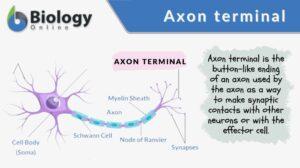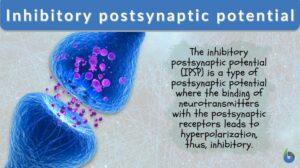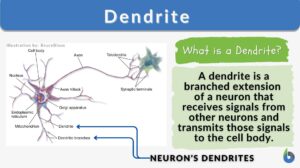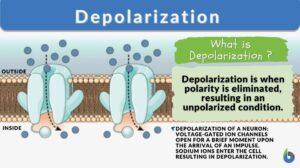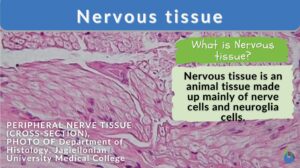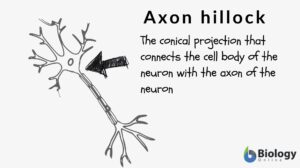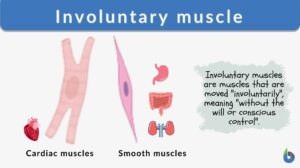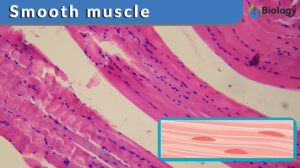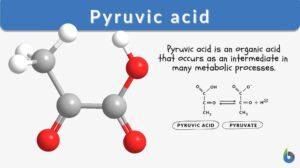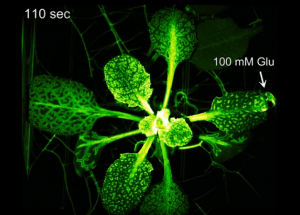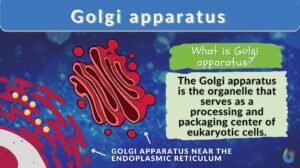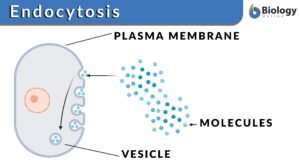Search Results for: neurotransmitters
Axon terminal
An axon terminal is any of the button-like endings of axons through which axons make synaptic contacts with other nerve... Read More
Neural Control Mechanisms
Nerve cells called neurons generate electric signals that pass from one end of the cell to another and release chemical... Read More
Inhibitory postsynaptic potential
Inhibitory Postsynaptic Potential Definition An inhibitory postsynaptic potential is a type of synaptic potential. It is... Read More
Depolarization
Depolarization is the removal of polarity by a process or action. It might also be used to describe how such activity leads... Read More
Muscular system
Muscular System Definition What is the muscular system? The muscular system is a system that includes muscle cells and... Read More
Nervous tissue
Nervous Tissue Definition Nerve cells (or neurons) and their associated cells, such as neuroglia cells, make up nervous... Read More
Autocrine signaling
Autocrine Signaling Definition What is autocrine signaling? Autocrine signaling is a type of cell signaling wherein a cell... Read More
Axon hillock
Axon Hillock Definition What is axon hillock? If you are familiar with the different parts of the neuron, the axon hillock... Read More
Homeostatic Mechanisms and Cellular Communication
Homeostasis is the relatively stable conditions of the internal environment that result from compensatory regulatory... Read More
Actions of Caffeine in the Brain with Special Reference to Factors That Contribute to Its Widespread Use
IV. Actions of Caffeine on Brain Functions and Behavior Having discussed the molecular and neuronal actions of caffeine,... Read More
Interstitial fluid
Definition noun The fluid found in the intercellular spaces composed of water, amino acids, sugars, fatty acids,... Read More
Sensory neuron
Definition noun, plural: sensory neurons A type of neuron that transmits sensory nerve impulses Supplement The neurons are... Read More
Involuntary muscle
A muscle act typically either under the control of the will or without conscious control. Muscles that can be controlled at... Read More
Smooth muscle
The smooth muscle can be described as a type of muscle in the human body that is non-striated and involuntary in action.... Read More
Somatic nervous system
Definition noun The part of the peripheral nervous system that consists of afferent nerves responsible in relaying motor... Read More
Efferent nerve
Definition noun, plural: efferent nerves The type of nerve that carries nerve impulses away from the central nervous system... Read More
Efferent neuron
Definition noun, plural: efferent neurons A neuron with an axon that carries nerve impulses peripherally, and innervates... Read More
Motor neuron
Definition noun, plural: motor neurons A type of neuron connected to a muscle fiber and originates from the central nervous... Read More
Pyruvic acid
What is Pyruvic Acid? Pyruvic acid is an organic acid that occurs as an intermediate in many metabolic processes. It occurs... Read More
Clostridium tetani
Definition noun An obligate anaerobic rod shaped and gram-positive bacterium which appears to looks like a drumstick that is... Read More
Principles of Hormonal Control Systems
Hormones are chemical messengers that enter the blood directly upon their secretion from endocrine glands. A single gland or... Read More
Kidneys and Regulation of Water and Inorganic Ions
Renal Functions Kidneys remove/add substances from/to the plasma. Regulate water concentration, inorganic ion... Read More
The biology of how the brain forgets
Our brain tends to forget things that we wish we would always remember. And yet, it cannot forget certain things we wish... Read More
Plant sets off “SOS” for plant defense when it gets hurt
When herbivore, such as an insect, nibbles a plant leaf, the plant sets off an "SOS" or distress signal as one of the... Read More
Neuropodia
Definition (zoology) Plural form of neuropodium, the ventral lobe or branch of a parapodium (neuroanatomy) synaptic... Read More
Peristalsis
What is Peristalsis? Peristalsis is the series of involuntary, wave-like muscle movements in the cylindrical, hollow tube... Read More
Excitatory postsynaptic potential
Definition noun A type of postsynaptic potential where the binding of neurotransmitters with the postsynaptic receptors... Read More
Telodendron
Definition noun, plural: telodendrons or telodendra Any of the terminal or smaller branches of an axon that terminates with... Read More
Golgi apparatus
Golgi Apparatus Definition The Golgi apparatus is a membrane-bound organelle in eukaryotic cells. It plays a crucial role... Read More
Neurohormone
Definition noun, plural: neurohormones Any of the various hormones secreted by neuroendocrine cells Supplement A... Read More
Endocytosis
Endocytosis Definition What is endocytosis in biology? Endocytosis is a cellular process by which a cell internalizes any... Read More
Miniature end plate potential
miniature end plate potential (Science: physiology) small fluctuations (typically 0.5 mV) in the resting potential of... Read More
Local hormone
Local hormone a metabolic product secreted by one set of cells that affects the function of nearby cells; an autacoid; e.g.,... Read More
